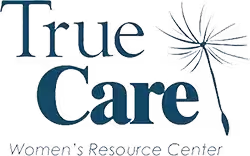Spring is in full bloom in Casper, Wyoming! Recent snows and rains helped the grass grow and green, tulips, daffodils and various flowers to bloom, and apple, elm, and other trees to bud. With the onslaught of the season and its beauty also comes small, and large, irritants: like allergies.
According to the Centers for Disease Control (CDC), more than 20 million adults and children in the United States have allergies to environmental sources, such as pollen and mold. There are other types of allergies as well, to substances like medications (i.e. penicillin), food, insects, and pet dander.
What’s an Allergy?
An allergy is when a person’s immune system reacts to a foreign substance, which is called an allergen. This could be something that’s eaten (peanuts are a food that many people are allergic to), inhaled (pollen), injected into the body (antibiotics) or touched (latex or lotions and soaps). The reaction to such allergens can cause coughing, sneezing, itchy eyes, a runny nose as well as a scratchy throat or a skin rash. In severe cases, allergens can cause hives, low blood pressure, and breathing problems as well as asthma attacks. If not treated immediately, allergic reactions can even cause death (anaphylactic shock to things like bee stings and even peanuts).
Asthma can result from allergies. Both adults and children can get asthma, which causes wheezing, breathlessness, chest tightness, and coughing at night or early in the morning. A doctor will prescribe medications to help control asthma attacks, which, if not treated, can cause death.
Therefore, treating both allergies and asthma is critical to maintaining a person’s health.
Allergy Treatment
There are a variety of ways to treat allergies. Antihistamines may help curb sneezing, runny noses, and itchy eyes. Over-the-counter products such as Zyrtec, Claritin, and Benadryl often provide relief; however, some of these may also cause drowsiness. Therefore, read labels, talk to pharmacists, and visit with your health care provider prior to purchasing and consuming these medications.
Decongestants, such as Sudafed and Afrin, may also prove beneficial for spring allergies.
However, a pregnant woman is discouraged from using decongestants due to the potential result of birth defects in the child. Therefore, if you’re pregnant and suffering from allergies, see your doctor right away before taking medicine to relieve your allergy symptoms. Ask your health care provider what is safe to take if you have allergies and are pregnant.
According to the Asthma and Allergy Foundation of America, allergies are on the rise in the United States, affecting as many as 30 percent of adults and 40 percent of children. If you suffer from allergies and suspect you might be pregnant, contact True Care’s Scheduling Line at 307-215-9684 for your free pregnancy appointment. Knowing if you’re pregnant will help you as you seek the right allergy treatment.
If you’re pregnant and experience allergies, read this article to learn more about springtime allergens and pregnancy: http://www.parents.com/pregnancy/my-body/aches-pains/pregnancy-allergies/.
Learn more about allergies and asthma from the following websites:
http://www.aafa.org/page/allergy-facts.aspx
